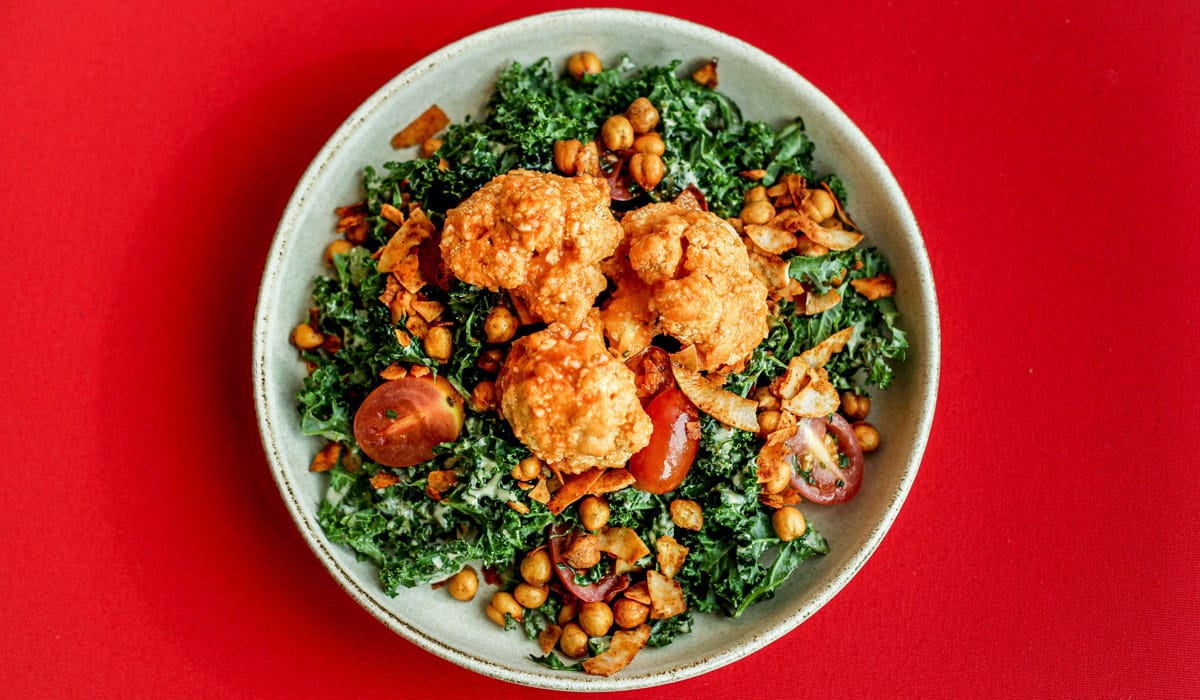The quick-serve and fast-casual industries have trended toward serving more nutritious menu items in the last decade, whether through increased usage of fruits and vegetables or swapping out ingredients for more clean-label alternatives. But while the nutrition movement has trended toward more individual diets—gluten-free, say, or keto—some brands are embracing a holistic approach to nutrition by serving more wholesome foods.
Consumer demand for such products has only grown during the COVID-19 pandemic, a season when individual health is top of mind, disposable income is tight, and routines have been disrupted. Indeed, a report from local-food company Forager found that 91 percent of consumers say it is important or very important to feed their family fresh, healthy food right now.
“Since COVID-19 set in, we’re finding that our guests are not only opting for healthy salad options during the typical lunch rush, but also at dinnertime,” says Bryce Anderson, cofounder of Lexington, Kentucky–based Vinaigrette Salad Kitchen, which has six locations. “I think we’re seeing an increase in traffic because people are at home and want to continue leading wholesome and vibrant lives despite being restricted from their regular routines.”
What defines wholesome foods is something of a moving target, but experts in the industry suggest it broadly covers ingredients that are sourced, prepared, and served in a way that protects their functional benefits—in other words, fresh, non-processed ingredients. For a salad concept like Vinaigrette, that’s not such a hard model. Anderson says the brand lets guests customize their meal with a variety of vegetables and greens and toppings like peppers, tomatoes, onions, quinoa, chickpeas, edamame, avocado, cheeses, salmon, chicken, and shrimp.
But the fast-casual industry has been hanging its hat on wholesome, high-quality fare even beyond the salad category. Take CoreLife Eatery as an example. The Syracuse, New York–based franchise offers salads, but also grain bowls, rice bowls, and Power Plates that boast a protein and two sides. Marketing manager Pauline DiGiorgio says the menu was designed to “exemplify the definition of food that fuels,” and that includes the kind of food CoreLife sources as much as how it stores and prepares those foods. “Our restaurants do not have microwaves or freezers, so all of our produce, proteins, and ingredients come in fresh and are prepared daily from scratch, even including our dressings and soups,” she says.
A similar mentality prevails at Grain & Berry, a Tampa, Florida–based bowl concept with 10 locations. “We strongly believe that if you truly want a wholesome menu, you have to make the orders in front of the customers so they can see what you are putting into their food,” says CEO Trey Kessler. “We never add preservatives, fillers, sugar, or anything unhealthy to our food.” Kessler says Grain & Berry receives fresh produce six days a week, which ensures that it is the best quality it can be.
Of course, flavor remains paramount in developing menu items considered more wholesome. Tyler Helikson, CEO of Raleigh, North Carolina–based Happy + Hale, says too many people believe “healthy” and “tasty” are mutually exclusive, and think they have to compromise on flavor to achieve nutrition. He’s on a quest to dispel that belief.
“I recently challenged our chef to create a dish that both vegans and carnivores alike would crave,” Helikson says. The result was the Hale Caesar salad, which brings some heft to the vegan dish through buffalo cauliflower and coconut bacon.
Similarly, Chicago-based healthy vending concept Farmer’s Fridge strives to provide some heartier options. Emily Stucker, director of menu development for the brand, says balance is key to a wholesome diet, and there’s no one-size-fits-all approach. That’s why even something like pasta—not an obvious go-to for any dieter—finds a place on its menu. “For our customers who prefer hearty and satisfying dishes, the whole-grain pasta in our Greek Salad, Buffalo Mac & Cheese Plate, and Pesto Pasta Bowl is a great source of protein to keep customers fueled and full,” she says.
Of course, plants reign for any R&D manager looking for a quick wholesome fix, and plant-based menus can especially offer a sort of “food as medicine” message. Chef Joshua Ingraham knows that well; he spent some time as the head chef of the Cleveland Clinic before opening his fast casual Go Buddha Meals, which features a plant-based menu with items like the Green Curry Vegetable Bowl, the Umami Noodle Bowl, and Walnut-Cauliflower Bolognese with Zucchini Noodles.
Ingraham says plant-based foods can be a great preventive medicine—and perhaps a critical tool in the fight against the coronavirus. “You’re sleeping better. You’re happier. Chronic illness and disease is gone, [as well as] aches and pains; your body wants to heal itself. It just needs the nutrition to be able to do that,” he says of the potential in consuming plant-based foods. “If anything, more and more doctors and the medical fields are actually starting to recognize it and use it.”











